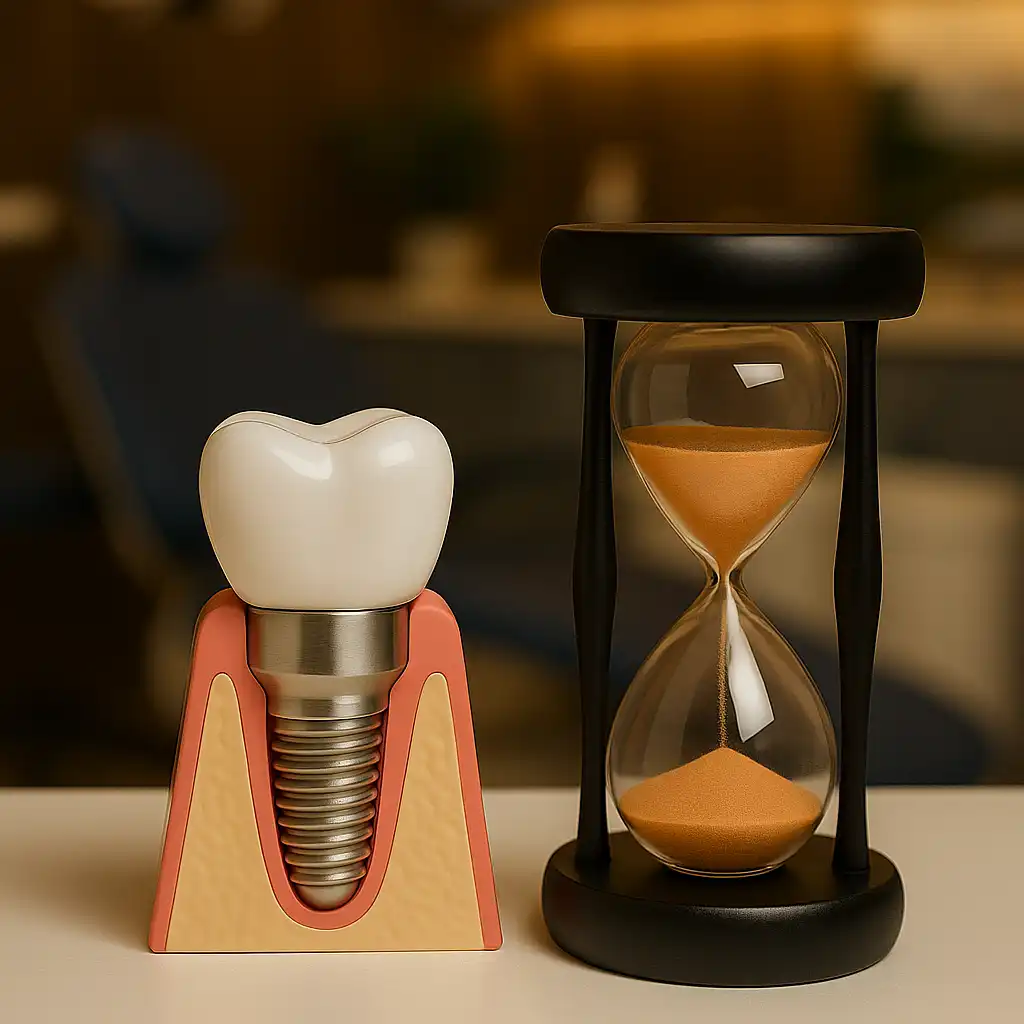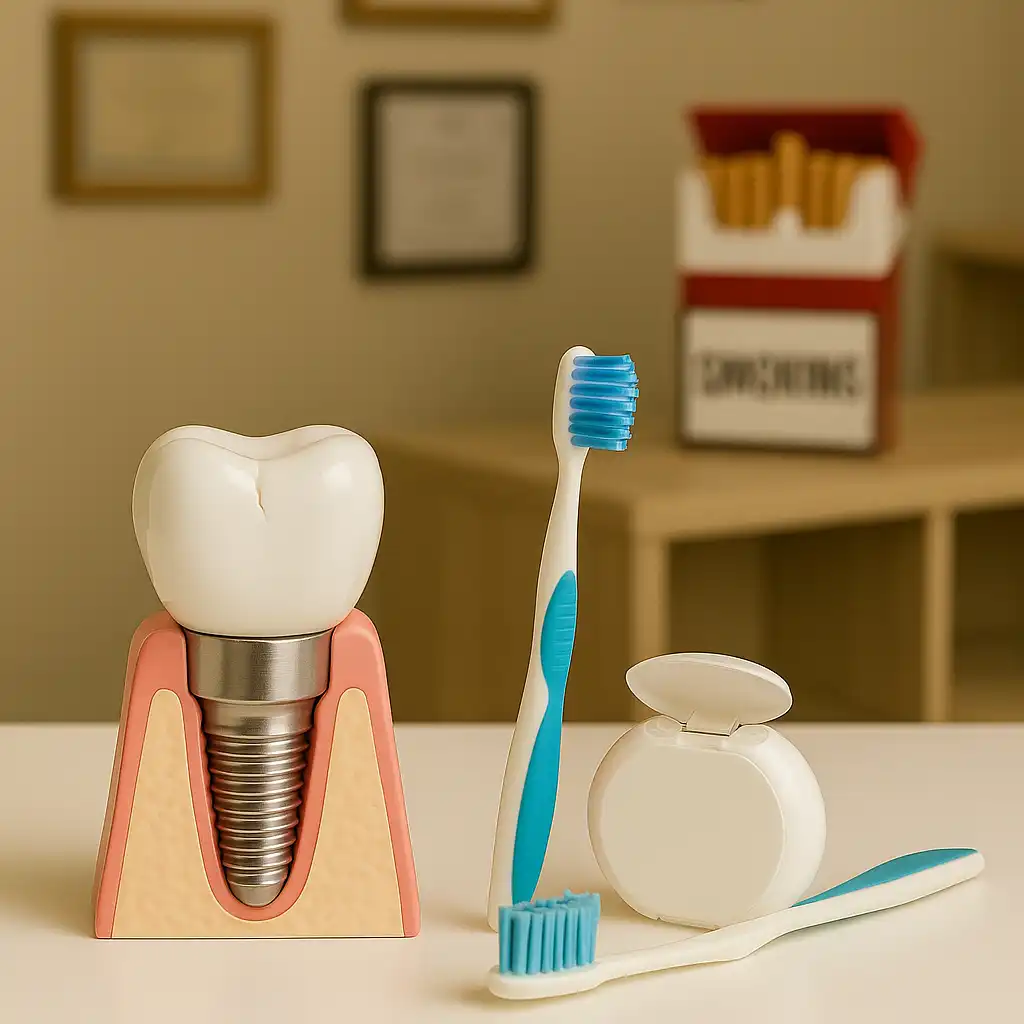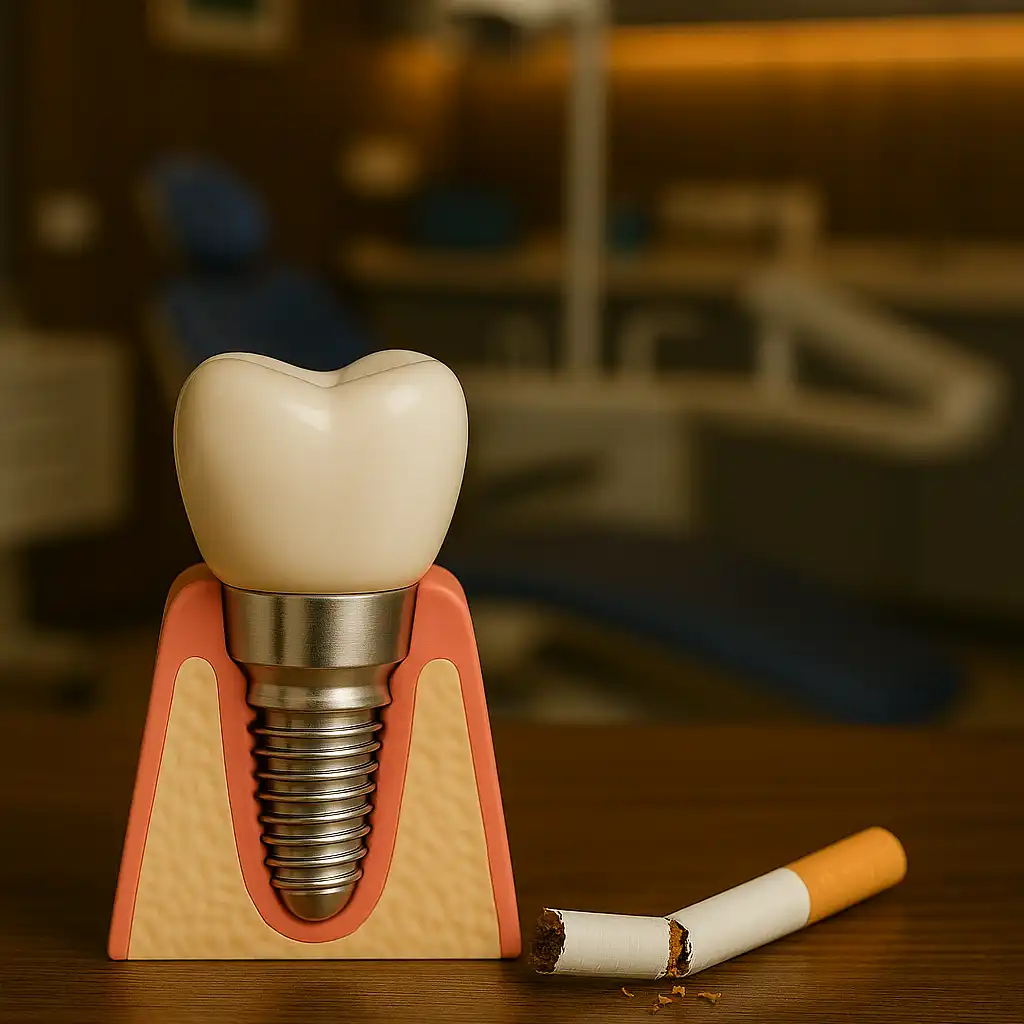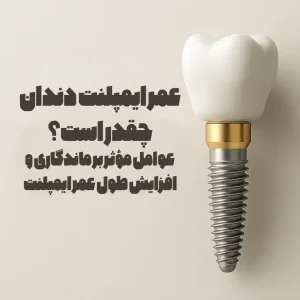Implants and Smoking: Are Implants Successful in Smokers?
One of the most common questions we are asked during our consultations is: “I smoke, can I get dental implants?” The short and honest answer is: Yes, but with specific conditions and your close cooperation.
Smoking poses challenges to the dental implant treatment process, but that doesn’t mean it’s impossible. At Dr. Ebrahimi’s clinic, we maximize the chances of success of this treatment with a special treatment protocol for smokers. In this guide, we transparently examine the risks and offer practical solutions to achieve a lasting smile.

Why is smoking a risk factor for dental implants?
To better understand this, you need to know that the success of an implant depends on a process called osseointegration, or the fusion of the titanium base to the jawbone. This process requires a strong blood supply and a healthy environment for healing. Nicotine and the thousands of other chemicals in cigarette smoke disrupt this vital process in several ways:
- Reduced blood flow: Nicotine causes blood vessels to constrict. This means less oxygen and nutrients reach the surgical area, greatly slowing down the healing and bone healing process.
- Weakening of the immune system: Cigarette smoke weakens the function of immune cells in the mouth and increases the risk of infection after surgery.
- Dry mouth: Smoking reduces saliva flow. Saliva plays an important role in washing away bacteria and protecting the mouth. Dry mouth creates a favorable environment for harmful bacteria to grow.
The main risks of implant placement in smokers
Honesty is the first step in successful treatment. You should be aware of the possible risks:
- Increased likelihood of implant failure: Scientific studies show that the rate of implant failure (non-union with bone) in smokers can be up to twice as high as in non-smokers.
- Peri-implantitis: This condition, which is the implant equivalent of gum disease, is more common in smokers and can lead to bone loss and implant loss.
- Longer healing period: Your healing process will be slower and the waiting period for the final crown may be longer.
- Increased need for ancillary treatments: Due to bone loss caused by smoking, you are more likely to need a [bone graft](link to bone graft article) before having implants.
Our special treatment protocol: How do we maximize the chances of success?
The good news is that these risks can be significantly reduced by following a careful plan. This protocol is a mutual commitment between you and our treatment team.
Stage 1: Before surgery (the most important stage)
- Quit or reduce smoking: This is a must. We ask that you completely stop smoking
at least 1 to 2 weeks before the day of surgery . The longer the better. - Detailed consultation and evaluation: During the consultation, we will more accurately evaluate your bone quality and volume using a 3D scan (CBCT) to ensure that you are ready for surgery.
- Oral preparation: A thorough scaling and cleaning of the gums may be necessary before surgery to reduce the bacterial load in your mouth.

Second stage: During surgery
Our team, aware of your condition, uses techniques that are minimally invasive and provide the best results. The choice of implant type and surgical method will be tailored to your situation.
Stage Three: After Surgery (Critical Period)
- Continue to quit smoking: You should completely stop smoking for at least 2 to 3 months after surgery. This period is crucial for the initial healing of the bone. Returning to smoking too early can undo all the hard work.
- Excellent hygiene: You will be taught hygiene instructions, including the use of special mouthwashes and a specific brushing technique (see the article Post-Implant Care for more information).
- Regular visits: You will need to visit the clinic at shorter intervals to check on your progress.
A commitment to smile again
We understand that quitting smoking is difficult, but see it as an investment in your health and restoring your beautiful smile. The success of dental implants in smokers depends more than anything on the willpower and cooperation of the patient themselves.
Dr. Ebrahimi Clinic team is ready to accompany you on this path. We will help you achieve your desired results despite this challenge by providing honest advice and a detailed treatment plan.
Are you ready to take the first step towards a big change? Contact us today for a professional consultation and assessment.







